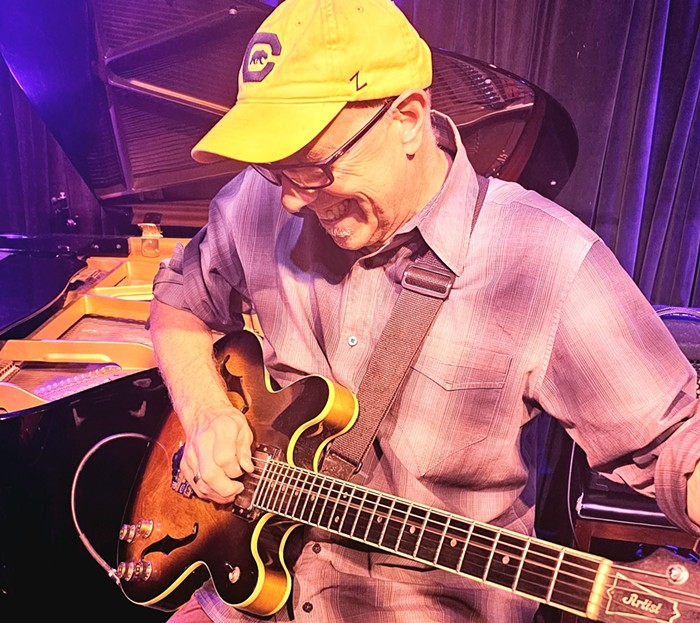"MUSICALLY, THIS RECORD is not very experimental," says Alela Diane of her new album, Alela Diane & Wild Divine. "It's a pretty straightforward record, which I don't think I was necessarily aware of while we were making it. But now I think it's become clear that that's what I did."
Wild Divine is the name of Diane's band, whose ranks include her husband, Tom Bevitori, and her father, Tom Menig. And Wild Divine, while not breaking down any genre boundaries or redefining the parameters of Diane's art, is a record that's comfortable in the very best way. Laidback folk-rock, played with ease and assurance, provides a steady current for Diane's crystalline voice to float down, with dusty tinges of country and bluegrass hiding in the corners. It's a familial record that exists completely outside contemporary hip music trends, and is all the stronger for it.
Diane and Bevitori co-wrote many of the tracks, marking the first time Diane had written with a collaborator. "I think before, I wasn't ready to take constructive criticism on something that I was working on," she says. "For this record, we had taken time off for the first time. I would start a song and keep changing it—the words and the melody and the chords, until I thought that it was the song it wanted to be. Before I would write a song in maybe an hour and just leave it how it was. And every time I would sing it, maybe there were a couple of words every time I sang them I would just kind of hate. [This time] I realized that this is my song, so if there is something I don't like about it I can just change it."
Wild Divine was recorded in Los Angeles with R.E.M. and Nirvana producer Scott Litt, who emerged from semi-retirement to make the record. "He was just doing his own thing," says Diane. "He was working with a Boys and Girls Club teaching underprivileged kids how to record, which was pretty rad. I think he was just burned out on the music industry, and doing that felt a lot more fulfilling; sharing the secrets of recording with those kids."
After recording a few demos with Litt, they decided to make the record together. "Initially, he wasn't shy about pointing this or that out and helping us to approach things differently, and I liked that about him," Diane says. "He worked with the drummer and the bass player a lot, just about finding what part they should be playing. Also, my husband, Tom, used to play bass in the band, and right off the bat, Scott was like, 'Well it's obvious that Tom is a guitar player and not a bass player, so you should probably let him play guitar.' Tom was pretty happy about that."
The songs on Wild Divine come from people in Diane's life: Her mother, Suzanne, makes appearances in "Suzanne" and "Rising Greatness," and "Elijah" is about a woman named Madeline that Diane met while on tour in France. "A couple of songs on this record came out of weird dreams, which tend to be a thing for me," she says. "I mean, it's all very fact based. But the way that I tend to paint the picture is a little more out there. Or the way that I'm describing an actual event is slightly abstract, I'm sure especially for the listener. Although to me it makes perfect sense! But all of the characters are real and people that I've met or know. None of it's made up."
"Death is a hard act to follow," she sings in "The Wind," and there are ghosts throughout the record—of the past, of memories that fade but are never fully extinguished. "There was a lot of death that kept coming up on the periphery of my life," Diane says. "Not anyone that was close to me, but just right on the outskirts. That definitely came into the songs. It's kind of a balance between the dark and the light. The last line on the record is, 'There is still good,' even though all of this shitty stuff is happening."
Indeed, what's striking about Wild Divine is its sense of shared experiences: of being in the here and now with loved ones, of appreciating the fleeting mysteries of life as they're happening. "There are a lot of references to unexplainable things and the unknown," says Diane. "To me, that's what 'wild divine' means. You know, the divinity, the heavens, whatever it is up in the sky—and then placing 'wild' next to it. Those two words together just seemed to kind of cover that theme of confusion."



















